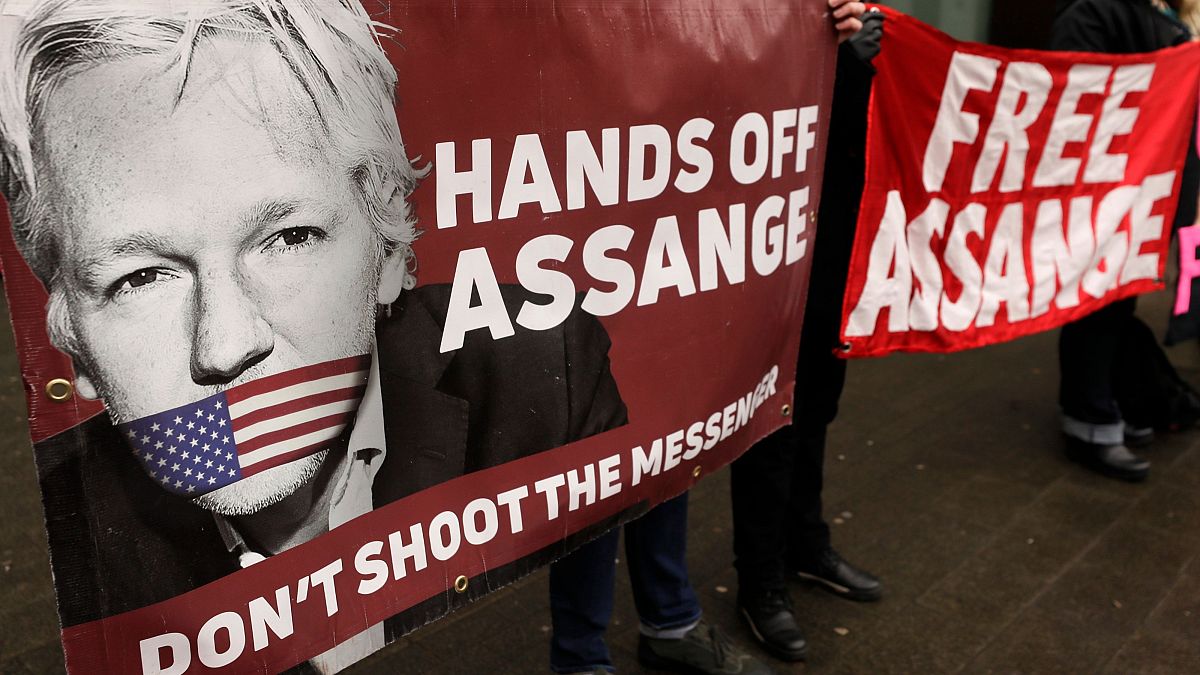Supporters of Assange have gathered outside the London court where the US extradition case against the Wikileaks founder is set to begin
Supporters of Julian Assange have gathered outside the London court where the US extradition case against him is set to begin.
The Wikileaks founder is wanted by the US for espionage charges. He was granted asylum in the Ecuadorian embassy in London in 2012, but when this was withdrawn last year he was arrested by UK police.
Should he be extradited, the 48-year-old faces 18 charges over the publication of classified documents. Prosecutors say he conspired with US army intelligence analyst Chelsea Manning to hack into a Pentagon computer and release hundreds of thousands of secret diplomatic cables and military files on the wars in Iraq and Afghanistan.
Assange says he was acting as a journalist, and is entitled to First Amendment protection. He claims the leaked documents exposed military wrongdoing, and among the files was a video from 2007 of a US Apache helicopter attack in Baghdad which killed 11 people, including two Reuters journalists.
Campaign groups such as Pen International, Amnesty International and Reporters Without Borders are warning the charges against Assange set a chilling precedent for freedom of the press.
A decade in hiding from the US
Assange was initially arrested in the UK in 2010 at the request of Sweden, where he was wanted for questioning over allegations of rape and sexual assault made by two women. He refused to go to Sweden, claiming he feared extradition to the US. He then skipped bail, seeking asylum in the Ecuadorian embassy in London, where he remained for seven years.
He has faced criticism for the way Wikileaks published classified documents without redacting details, and the group has also been accused of serving as a conduit for Russian misinformation.
His extradition case could drag on for some time. Monday sees the beginning of a week of opening arguments, with a break due until May, when evidence will be set out and a judgment made. This could then be subject to appeal.
If the courts approve extradition, the British government will have the final say.
